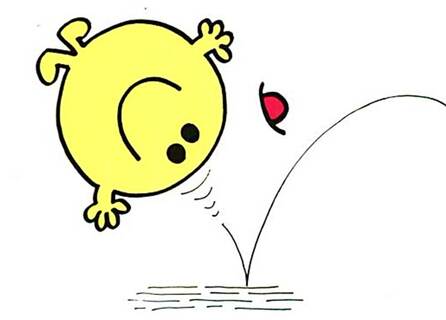|
‘The medical model doesn’t perfectly fit mental health – and it confuses a lot of people.’ (Emma McAdam) Is mental health all in the mind? I don’t think so, but I do believe we’re sometimes getting a bit lost in how we think about and approach it. Take Sam. He’s 27, talented and full of potential. Yet Sam often finds himself these days feeling jittery and irritable and struggling to concentrate. His partner finds his mood swings and erratic behaviour increasingly difficult to cope with. Feeling concerned, she took him recently to see his GP who referred him for a mental health assessment. The assessor asked Sam briefly over the phone to describe his symptoms, diagnosed his state as ADHD and recommended prescription medication to resolve it. Now step back with me for a moment. Consider human factors that lead to a sense of mental, emotional and physical well-being, and which can influence a corresponding felt-experience of unwellness if persistently absent in our lives. Things such as: safety and security; sense of purpose; engaging in positive and meaningful human relationships; ability and opportunity to exercise free choices; feeling of making a valued contribution in the world, especially for the benefit of others; achieving something worthwhile; fresh air; change of scenery; prayer, intimacy; sex; physical exercise; personal hygiene; laughter; diet; sleep; rest. Sam stays mostly indoors; sleeps until mid-afternoon; rarely washes; spends all night, every night, playing intense computer games; eats junk food; lives on high-caffeine energy drinks. He did have a job for 2 weeks at a call centre but resigned because he felt unhappy dealing with customer complaints. He has now been unemployed for some time and lives on state benefits. From a psychological and relational perspective, we could view ‘feeling jittery and irritable and struggling to concentrate’ as natural outcomes of Sam’s lifestyle choices, not as a pathological dysfunction requiring medication. Social prescribing could be a healthier response.
20 Comments
‘Grief is not a disorder, a disease or a sign of weakness. It is an emotional, physical and spiritual necessity, the price you pay for love. The only cure for grief is to grieve.’ (Earl Grollman) Ambushed by grief. A graphic book title and a profound way to convey the experience of the experience. Grief can, at times, take us completely by surprise, impacting us suddenly and as if out of nowhere; leaving us breathless, broken and bleeding. My most traumatic grief experience was at age 18. I still re-experience it, like living in the vice-like grip of a terrible nightmare that stubbornly, agonisingly and tormentingly won’t let go. One of the best descriptions of grief I’ve ever read is a beautiful and painful personal expression of this phenomenon that, in the midst of such agonies, offers a picture of hope. It resonates with much of my own personal experience too. Only in more recent years have we begun to discover, perhaps to rediscover and to understand, the somatic dimensions and consequences of traumatic grief. The body certainly does keep the score. On Easter Saturday (a day that marks the existential time gap between Jesus’ death and his resurrection) this year, I visited a Christian community where one of its leaders shared a deeply evocative short video clip by Massive Attack. It captured and expressed feelings of denial, betrayal, pain, abandonment and death in such a way that left me stunned and speechless. We prayed for all who feel trapped in a perpetual state of dysthymia. Few images have more powerful emotional resonance for me than that moment at which the WW2 Allies detonated explosives under a huge marble swastika at the Zeppelinfeld stadium in Nürnberg, Germany. It was the place where, just before the war, Hitler and his followers had held their infamous Nazi rallies. The rallies had proved a potent propaganda weapon, convincing Nazi supporters of their own ‘supremacy’ and intimidating their enemies into fearful submission. The public destruction of this infamous symbol marked the impending final demise of the deranged Nazi myth and its psychopathic regime, and the end of by far one of the worst eras in human history. I can only imagine how it must have felt for those who had suffered so terribly to witness, at last, this emerging glimmer of hope. Similar evocative and symbolic moments were soon to follow with a Soviet flag over the German Reichstag and an American flag raised on Iwo Jima. There’s something about these images-as-symbols that capture and express a wider human story and experience. They carry and convey powerful psychological, cultural and emotional meaning for those who understand and identify with what they represent. Other well-known examples of symbols include the Christian cross as a sign of God’s love and salvation through Jesus Christ or, conversely, ominous ‘Z’ insignia on Russian military vehicles during the 2022 invasion of Ukraine. What symbols have a particular resonance for you – and why? In its now-classic album, Hemispheres, Canadian rock band, Rush, sing a dramatic story of a cosmic struggle between competing gods of love and reason; each determined to rule humanity on its own terms. It’s a creative mythological account of the very real dilemmas and tensions we face and experience in human decision-making of head vs heart. (If interested in a faith dimension, we can see this polarity resolved in Jesus, described in the Bible as ‘full of grace and truth’, and in his call to be ‘wise as serpents and tame as doves’). Yet, how hard it is to do this in practice. It becomes more complex if we get caught up in emotional reasoning: ‘…the condition of being so strongly influenced by our emotions that we assume that they indicate objective truth. Whatever we feel is true, without any conditions and without any need for supporting facts or evidence’ (Therapy Now, 2021). It’s a blurring of heart and head so that the former appears to us, as if self-evidently, the latter. Betts and Collier, in their thoughtful review of refugee policy (Refuge, 2017) liken this to a ‘headless heart’; a decision driven by emotional response without due regard for consequences. A person may hold the opposite extreme, the ‘heartless head’, where he or she believes every decision must be informed or supported by rational thinking or objective evidence - and emotion or intuition are disregarded as irrelevant or unsound. We see this in cultural environments where, as Eugene Sadler-Smith observes, leaders feel compelled to post-rationalise intuitive decisions in order to make them more acceptable to colleagues (Inside Intuition, 2007). It’s a stance that risks dismissing beliefs, values and other dimensions of sense-making, motivation and experience. John Kotter brings words of wisdom here (Leading Change, 2012): to pay attention to our own default biases and to take account of those of others too, if we’re seeking to influence change. On presenting vision, he offers a helpful rule of thumb, ‘convincing to the mind and compelling to the heart’. The Myers-Briggs Type Indicator (MBTI) provides useful insight into different preferences that influence decision-making too. Rush’s epic song ends with its own solution: ‘Let the truth of Love be lighted, let the love of Truth shine clear…with Heart and Mind united in a single perfect sphere.’ At a time when geopolitical tensions between NATO-EU and Russia are on the increase and depicted starkly as such in the media, I showed a video of a Russian 'hell march' to an international group and asked them: a. What do you notice; b. How do you feel; c. What does it mean? It opened a deep conversation that emphasised the need for critical reflexivity in interpreting experiences and events. A Chinese participant looked quite disdainful and said it reminded her of similar 'propaganda parades' in her home country, designed to make people feel compliant and positive about the Communist party state. A German participant said it filled her with fear, evoking stories she had heard from elderly family members about horrors under Soviet occupation at the end of the Second World War. A UK participant, perhaps with the spirit of Brexit still reverberating fresh in the background, said she found the enforced uniformity and conformity disturbing. A Filipina participant from an Hispanic cultural background, who had lived under a repressive military dictatorship, said she liked how the soldiers were as-if dancing to a rhythm and doing something constructive that displayed positive talent. I noticed banners in the background depicting 1941, the year in which the Nazis had unleashed a war in the East that resulted in unspeakable terror and devastation. As a passionate anti-Nazi, I saw the march as an assertive symbol: a 'never-again'. We reflected on our different selective perceptions, feelings and interpretations and the profound influence of ourselves-as-filters as we look out onto the world. In a similar vein, at a Gestalt coaching training workshop last week, I posted an image on screen of a tree in wheat field with dark clouds looming overhead. I asked the group what they would notice in 3 imagined scenarios: 1. As a child, you loved to climb trees; 2. You are walking the countryside and have forgotten to bring a raincoat; 3. You and your family have had no food to eat for a week. We noticed that we notice what matters to us in the moment. Different people-groups may notice different things in the same situation, or the same person-group may notice different things in the same situation at different times. We attribute meaning based on our beliefs, values, hopes, fears and expectations. This includes personal and shared-cultural memories, emotions and imaginations. As we move ahead this year, I pray that I-we will do so with eyes wide open. What may appear to us as self-evident, real and true may reveal as much about us as who or what we observe: if we are willing to see it. What can we do to create greater critical reflexivity? How can we address blind spots and hot spots to open up fresh possibilities, address risks – and take a stance that is sound? My daughter is a guinea pig. This afternoon in the bright sunshine, I invited her to take part in an experiment. First, we stepped out into the street and, gesturing to a line of cars parked at the roadside, I asked, “If you were to buy a car, what colour would you choose, or definitely not choose?” She answered, “I’d love a white car.” “OK,” I replied, “let’s go for a walk into town and back. Your task is to count every white car that we pass. If you have the same number as me when we get back here, I will give you £10. How does that sound?” She grinned and willingly agreed.
An hour later, we stopped back where we had started and I asked her, “So, how many red cars did you see?” She looked at me blankly. “I didn’t see any red cars. I counted 206 white cars.” In fact, we had passed 93 red cars, yet she had been so focused on the white cars that she hadn’t seen a single one. This simple experiment illustrates an important psychological phenomenon known as selective attention: “The ability to pay attention to a limited array of all available sensory information…a filter that helps us prioritize information according to its importance.” (Bertram Ploog, 2013). Gestalt psychotherapist Geoff Pelham comments that, in any given relationship or situation, we notice who or what matters most to us (The Coaching Relationship in Practice, 2015). This idea of who or what matters most reflects beliefs, values and emotions. In this exercise, my daughter was influenced and motivated by her beliefs (that this experiment would serve some useful purpose), values (the prospect of a £10 reward) and emotion (her choice of a colour she likes). These factors combined to ensure concentration on a task (counting white cars) that required selective attention. Why is this insight significant in our work with people? The principle extends beyond literal-visual perception to deeper psychological processes too. Our beliefs, values and emotions subconsciously influence our focus and act as filters. We construe personal-shared narratives based on what we perceive. Such narratives appear to us as-if reality, as-if totality, and often without any awareness of who or what we have excluded. As such, narratives always point to and reveal, implicitly, who and what matters most to a person, group or culture, rather than to a definitive account of reality per se. A key question is, therefore: who or what are we, and others, not-noticing? If we can enable a shift in perception, a re-shaping of a narrative, what then becomes possible? Interested to do further reading in this area? See: The Art of Looking: Eleven Ways of Viewing the Multiple Realities of our Everyday Wonderland. My journey deep into the Waray jungle of the Philippines started some 40 years earlier at exactly 11 minutes and 8 seconds into Mike Oldfield’s Ommadawn album, the sequel to his incredible, iconic Tubular Bells masterpiece. I was laid on the floor in my parents’ living room with headphones on, listening and absolutely entranced by this mysterious music as it led eerily into strange, haunting vocals and a mesmerising, rhythmic, drum beat. Just then, I looked up and saw images on TV of a very old black and white film of tribal people canoeing up a jungle river. It set my imagination on fire. I play Ommadawn at 12 minutes and 28 seconds now and those same pictures and feelings come flooding back evocatively – moving, exciting and captivating me, just as they did back then. Music has a way of doing that, as can e.g. image, colour, place, touch, object, word, taste or smell. We may find ourselves suddenly and unexpectedly transported back in an instant, in memory and in experience, as if no time at all has passed in-between. This can be very powerful in leadership, coaching, training and OD. Who or what holds positive resonance to build on? Who or what triggers negatively, to avoid? ‘My life has been filled with terrible misfortunes; most of which never happened.’ (Michel de Montaigne) Imagination can be a rich blessing and a painful curse. On the one hand, it can enable the most amazing creativity and innovation; on the other, it can cause the most terrible suffering and pain. Learning to handle and harness the power of the imagination can be a very valuable skill. Yet it can feel like trying to tame a wild horse. We sense and feel its power and potential but can never quite control it. Sometimes it can inspire or entertain us; at other times, it can terrify or overwhelm us. I remember an advert for an organisation that supports people with a frightening, degenerative, physical disease. It said quite simply, yet so poignantly, ‘It’s what goes through your mind that’s the worst’. I remember, too, a colleague who comments that, ‘The past exists only in memory; the future exists only in imagination.’ Imagination creates the possibility to experience as-if reality, now. So, if that means experiencing our happiest dreams – good; if our worst nightmares – not good. An opportunity and a challenge is that the brain doesn’t distinguish sharply between actual reality and as-if reality. This means that, if we imagine something vividly enough, it can be as if, mentally, emotionally and physically, we go through that experience for real. That's great for fields like, say, Appreciative Inquiry that capitalise on positive imagination to create a better and brighter future; not great for professionals who experience, say, vicarious trauma or secondary traumatic stress. How do you draw on the immense power of imagination to achieve positive change? How do you avoid or address its potentially damaging effects? ‘How to develop a thick skin at work without being obnoxious.’ (Experteer) The article title made me smile. We often think of people with thick skin as tough, resilient and, at times, insensitive to others. It’s as if thick-skinned people are able to handle high levels of relational tension or conflict without feeling hurt or bruised. A similar personal-relational metaphor we sometimes hear is Teflon. If you are unfamiliar with it, Teflon is a material with ‘an extremely low coefficient of friction’ (Urban Dictionary). If something is coated with Teflon, stuff doesn’t stick to it. Tensions and conflict simply slide off, leaving a Teflon person unaffected by relational stress. Whilst thick-skinned or Teflon people may be insensitive to criticism or insults, other people may be overly-sensitive, feeling hurt by relational tension or allowing conflict to penetrate into their soul. A pastoral friend, Nikki Eastwood, uses a blotting paper metaphor to characterise this. If you are unfamiliar with it, blotting paper is an absorbent material, used to soak up excess ink when writing with a traditional ink pen. If we allow ourselves to absorb all the hurt, pain, frustrations etc. of other people, including that projected onto us, we can become debilitated, stressed and exhausted. I worked for most of my life in human rights work and international non-governmental organisations (NGOs). Faced, at times, with unspeakable suffering of others, I became very run down. Eventually, I spoke with an insightful therapist, Shona Adams, who challenged my risk of over-empathising. In my desire to feel and communicate genuine contact with others, I learned that sometimes I stepped so far into others’ shoes that I stepped out of my own. It was as if I was experiencing others’ traumas vicariously, yet without the resilience that people in such situations often develop or discover. So, what can we do to build healthy, constructive relationships that are neither too Teflon to the point of insensitive arrogance on the one hand or too over-empathetic to the point of unhealthy confluence on the other? How can we develop emotional intelligence and resilience? Firstly, listen actively for expressed and unexpressed feelings of others. If you’re unaware or unsure, be curious and inquire. Secondly, establish and maintain a clear psychological boundary and relationship between your experiences and those of others. It may be about you but it’s not only about you. If you would like help with creating and sustaining healthy, inspiring and effective relationships at work, get in touch! [email protected] Have you tried reasoning with someone when they’re feeling intensely emotional? It’s hard to think clearly, think straight, when we’re stressed. Some brain research says it’s almost impossible. When we’re stressed, we flick out of reasoning mode into fight-fight-freeze mode. The brain gets flooded with chemicals that are intended to enable us to survive an emergency, a crisis. Trying to hold a rational conversation with someone in that state can be like pouring fuel onto a chemical fire.
Cognitive behavioural psychology points us helpfully towards some signs that a person may be in that kind of emotional place. For example, they may be speaking in very black-white/either-or terms, unable to see nuances or alternatives in a situation. They may be assuming intentions in others or predicting outcomes with unfounded certainty – as if they know the future for sure. Physically, they may be struggling to rest or sleep, missing meals or avoiding normal patterns of social contact. The vivid image that comes to mind for me is that of a lot of dust being kicked up into the air. Until the dust settles, we are unable to see clearly. This is a reason why leaders who try to lead change and transition as a purely rational-technical process often encounter greatest resistance or other attitudes or behaviours they consider irrational. It’s also a reason why coaching and training may fail if the coach or trainer doesn’t take the client’s or group’s emotional state into account. So what, if anything, can we do to address this? We can offer time and space for people to feel and process their emotions. ‘How are you feeling as we talk about this?’ As the person or group talks, the dust often settles enough for them to start to make sense of their experience and to see and discuss the beginnings of a way forward. We can also offer empathy and support. ‘What do you need?’ It values and respects the person or group and shows care, responsiveness – and standing-with. |
Nick WrightI'm a psychological coach, trainer and OD consultant. Curious to discover how can I help you? Get in touch! Like what you read? Simply enter your email address below to receive regular blog updates!
|












 RSS Feed
RSS Feed